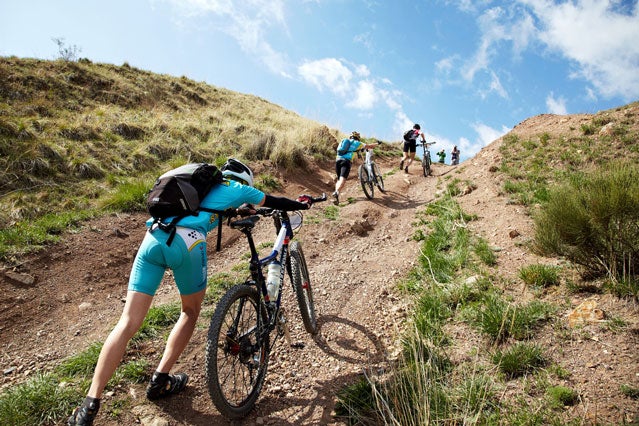Your immune system is made up of many different components—the inflammatory response, mucous production, cells that attack pathogens, etc. When exercise immunologists conduct research, they’re often looking at how one or a few of those parts responds to training and racing. And while there’s still a long way to go in understanding the impact of strenuous exercise on the immune system as a whole, several of the world’s leading exercise immunologists came together to publish in in late 2011 outlining what they currently know.
In short, it’s not uncommon for athletes like yourself to get sick after big races. Researchers believe there’s an “open window” of impaired immunity that may last between three and 72 hours after a big event. During that time, your body’s resistance to pathogens is lowered, leaving you at higher risk for infection.
That doesn’t mean illness must inevitably crash your post-race party. Here are a few things you can do to lower your risk of getting sick:
CARBO LOAD: Go ahead and pig out on pasta before a big event. Researchers found that loading up on carbs (up to 60 grams or 240 calories per hour) before and during a strenuous workout will lessen inflammation and the amount of stress hormones your body releases.
TAKE A QUERCETIN SUPPLEMENT: The natural antioxidant found in fruits and veggies, among other foods, was in exercise-stressed athletes when they took 1,000mg per day for a week before their big event, then continued to take 1,000mg per day for two weeks after the event. And while researchers didn’t find much evidence to support taking vitamin C, vitamin E, multivitamins, branched chain amino acids, fish oil, ginseng, or Echinacea, they did find that quercetin’s anti-inflammatory and antioxidative effects were enhanced when taken with green tea extract and fish oil.
GO TO BED EARLY: Get in bed by 10, 11 p.m. at the latest. Some researchers found that people who stayed awake between 10 p.m. and 3 a.m. had significant decreases in immune function. Another study found that sleep deprivation between 11 p.m. and 3 a.m. increased inflammation, especially in women. And yet another study found that “adults who slept for less than seven hours per night were almost three times more likely to develop symptoms of the common cold than those who slept more than eight hours per night.” If nerves keep you up the night before your event, and post-event pain keeps you awake the night after, that lack of sleep could be one reason why you tend to race yourself sick.
STAY LOW: If your race is at altitude, there’s no way you can avoid going hard while you’re high. But know that being at altitude has been shown to decrease immunity, though typically only after being above 10,000 feet for more than a week.
If you still get sick after trying the suggestions above, researchers recommend you don’t workout again until you’ve had a full day fever-free, and improvement in all of your symptoms.


